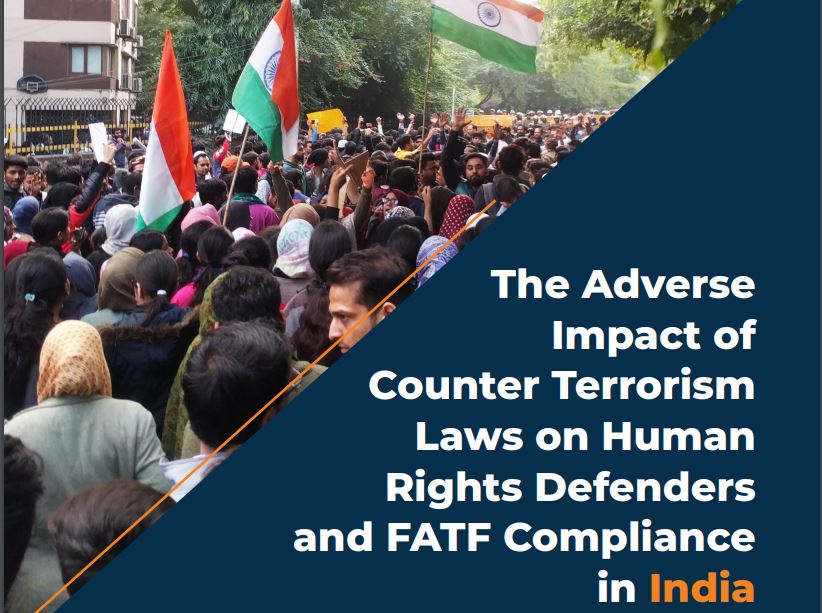Washington, D.C. (October 30, 2023) – The American Bar Association Center for Human Rights has, in a recently released report, examined the misuse of counter-terrorism financing legislation by India’s ruling Hindutva supremacist government, headed by Prime Minister Narendra Modi. This misuse has primarily targeted non-profit organisations (NPOs) and human rights defenders.
Titled “The Adverse Impact of Counter Terrorism Laws on Human Rights Defenders and FATF Compliance in India,” the report finds that India is contravening the Financial Action Task Force’s (FATF) basic requirements and guidelines by targeting the human rights defenders and civil society actors.
“India, upon its membership to the FATF in 2010, embarked on a series of amendments to its anti-terrorism and money laundering legislation, ostensibly aimed at aligning itself with FATF requirements. However, this process has led to sweeping adverse consequences for non-profit organisations (NPOs) and human rights defenders who have been subject to prosecution, often for the sole reason of exercising their civic freedoms and expressing criticism of the government,” the report notes.
The report examines three draconian anti-terrorism laws: the Unlawful Activities Prevention Act 1967 (UAPA), the Prevention of Money Laundering Act (PMLA), and the Foreign Contribution (Regulation) Act (FCRA).
Furthermore, it inquiries into specific cases involving NPOs and human rights defenders in India, including the bogus case against journalist Siddique Kappan, the application of terror funding charges against protestors of the citizenship bill, the arrest of Kashmiri political leader Waheed-ur-Rehman Parra, the Bhima Koregaon case, and the suppression of democratic rights activists in Telangana.
The report reveals that Indian investigating authorities often employ vague accusations and inconsistent evidence in their attempts to penalise human rights defenders and NPOs critical of India’s government. Moreover, it notes that anti-terror laws have expanded over time, becoming increasingly ambiguous and frequently undermining fundamental procedural protections for defendants.
The report has recommended the Indian government amend the UAPA, PMLA, and FCRA laws to prevent its abuse. It also advises that during investigations or prosecutions involving individuals engaged in legal, journalistic, or activist activities, authorities should prioritize objective risk assessments to ensure compliance with FATF recommendations.
Read and download the full report here
Related:
Diverse Nation Needs Diverse Battles to Save it, Say Civil Society Activists
Violation of rights due to PM visit can’t be tolerated: Civil society to PM
HRD & lawyer Mohammed Shoaib among two other activists in Varanasi picked up: UP
